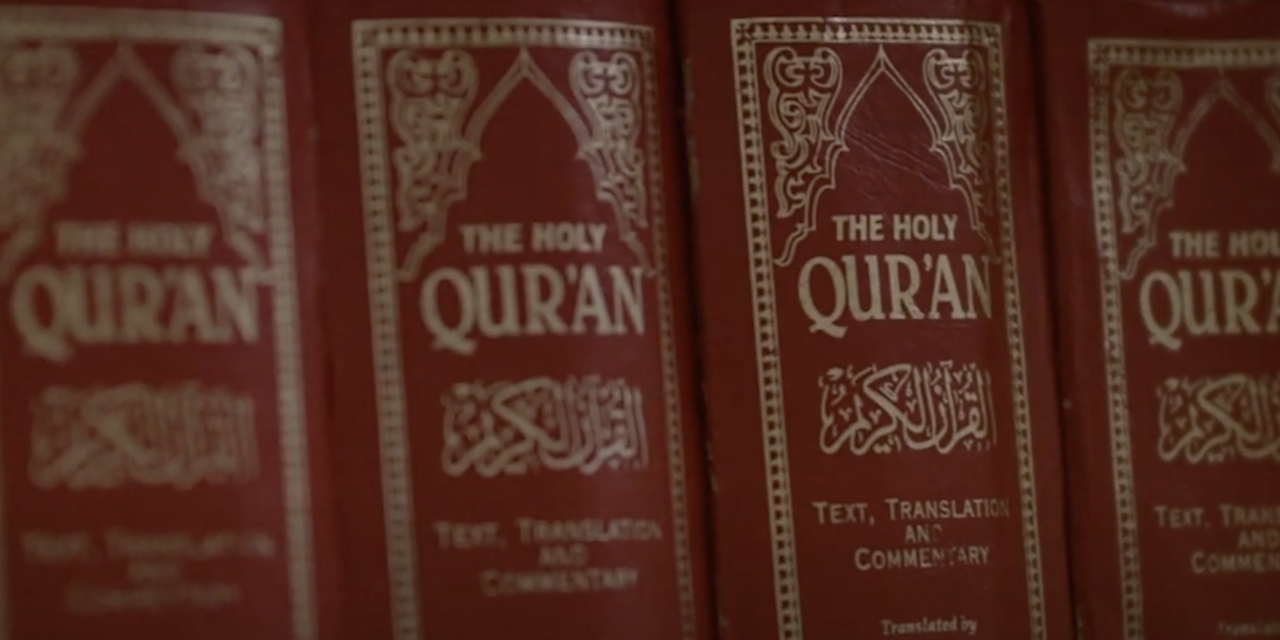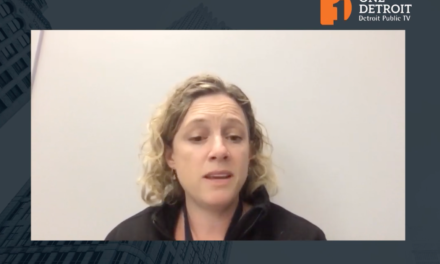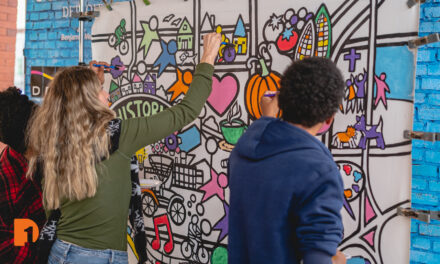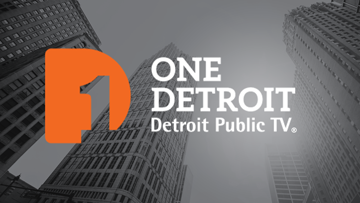Originally posted April 12, 2021. Updated March 22, 2022.
The annual celebration of Ramadan, the holy month of prayer and fasting for Muslims across the world, is celebrated March 22-April 21 this year. As part of the Interfaith Leadership Council of Metro Detroit‘s Religious Diversity Journey series, student Maria visits the Muslim Unity Center in Bloomfield Township to learn about the history of Islam and its connection to families in the community.
RELATED: Watch more from the Religious Diversity Journey series
RELATED: Inaugural Ramadan Market Highlights Islamic Holiday in Metro Detroit
Dr. Dima El-Gamal, of the Muslim Unity Center‘s Interfaith Committee, takes viewers on a journey through multiple sessions to learn more about the Islamic religion’s values, practices, fundamentals, origins and contributions to society, all through the student lens. Plus, learn about the role and relationship of women to Islam.
This project is funded in part by Michigan Humanities, an affiliate of the National Endowment for the Humanities.
Watch Now:
Full Transcript:
Dr. Dima El-Gamal, Interfaith Committee, Muslim Unity Center: As-salamu alaykum, peace be upon you, my name is Dima El-Gamal. I am a member of the Muslim Unity Center Interfaith Committee and a formal board member.
The Muslim Unity Center was founded in the early 90s, and there are about 300 families who are members of the Muslim Unity Center. Muslim Unity Center is home away from home to a lot of community members. Maria is going to be our guest today; we invite her through multiple sessions to explore our values and our tradition, the Muslim faith traditions.
She will learn about the fundamentals and origin of Islam. She will also learn about the contributions of Islam to civilization, as well as the role of women in Islam and much more.
Dr. Dima El-Gamal: As-salamu alaykum, peace be upon you. Welcome to the Unity Center. My name is Dima El-Gamal. I’m an Interfaith Committee member. Welcome to the journey, let’s start. This is Patrick and Areeb.
Patrick Cates, Interfaith Committee, Muslim Unity Center: As-salamu alaykum, Maria. Nice to meet you.
Maria, Visitor: What are the fundamentals of Islam?
Patrick Cates: The fundamentals of Islam. Well, you know, Islam is built upon five pillars, first of which is called the testification of faith, the Shahada. And it basically it states that you believe that there is no God worthy of worship except God one God, and that the Prophet Muhammad is his messenger.
Maria: Is Islam a new religion?
Patrick Cates: Muslims believe that from the time of Adam and Eve all the way up to the present and continuing through a line of prophets and revealed scriptures, that Islam came as a completion of that chain of revelation.
Maria: Who are Muslims?
Patrick Cates: Muslims represent every race and nationality across the world.
Areeb Ansari, 7th Grader, Rochester Schools District: Did you know that not all Muslims are Arabs? Only 15 percent of the world’s Muslims are Arabs.
Patrick Cates: Here at the Unity Center, you’ll find people with origins in the Arab world, from East Asia, from Africa, all over the world.
Maria: What are you doing?
Yusuf Hares, 8th Grader, Walled Lake School District: We’re just setting up decorations for Eid.
Maria: What’s Eid?
Yusuf Hares: Eid is the Arabic translation for holiday. And Muslims celebrate two holidays, Eid al-Fitr and Eid al-Adha.
Maria: How do Muslims celebrate Eid?
Mimo Debryn, Volunteer, Muslim Unity Center: They celebrate Eid by gathering at the local mosque for special congregational prayers and services. They give charity to those that are in need, and they also gather with family and friends and celebrate with good food, fun, new clothes and plenty of gifts.
Maria: What do you say to a Muslim during Eid?
Yusuf Hares: We say “Eid Mubarak”, which means blessed holiday during both Eid’s.
Maria: How many times do Muslims pray each day?
Aayan Jawad, 7th Grader, Bloomfield Hills School District: Muslims pray five times each day.
Shaykh Mohamed Almasmari, Imam, Muslin Unity Center: When you see a Muslim pray, we will most likely see them going through different motions. You’ll see them standing up, you’ll see them bowing down, you’ll see them then prostrating. This is the greatest way of showing one’s submission to God.
Maria: Do Muslims only pray in the mosque.
Shaykh Mohamed Almasmari: So for a Muslim, he or she are able to pray anywhere, anyplace. The moment the time comes in for prayer, they are asked to pray.
Aayan Jawad: This is why some students prefer to pray in a quiet place in school.
Maria: Do men and women pray in the same place in the mosque?
Shaykh Mohamed Almasmari: The answer is that women are given the option. In the time of the prophet, peace be upon him, women and men prayed in the same prayer hall. So it is permissible, Islamically, for men and women to pray in the same prayer hall.
Maria: Can you tell me about what Islam has contributed to civilization?
Shaykh Mohammed Ishtiaq, Michigan Islamic Institute, Academic Vice Principal: That’s a brilliant question. As you can see from these 1001 invention posters that the Muslims contributed to schools, hospitals, the universe and the Muslim civilization. And this ran from the 8th century all the way to the 16th century. And this was titled “The Golden Age for the Muslims”.
Maria: Can you explain to me why you’re covering your head?
Ranya Shbeib, Volunteer, Muslim Unity Center: Sure, that’s a question I get asked often. Islam teaches modesty for both men and women. The Islamic dress code for women is referred to as hijab. So once a Muslim girl reaches the age of puberty, she will cover her body with loose clothing, only showing her hands and her face. And hijab looks different in different parts of the world because it’s influenced by culture. And you’ll see some of the moms and the daughters outside, some of them are wearing hijab, some of them aren’t. And there might be a little some subtle differences in the way that they choose to wear hijab.
Maria: What is a woman’s role in Islam?
Ranya Shbeib: So Islam teaches respect for women, regardless of what their role is as mothers, daughters, wives. The Koran has many verses and through the prophetic teachings that emphasize respect for women, and teaches equality of men and women in their deeds and their spirituality.
Maria: Does Islam support arranged marriage?
Ranya Shbeib: No, not at all. In Islam, for a marriage to be valid, both the bride and the groom have to give their consent to the marriage. Otherwise, it’s not valid.
Maria, Visitor Thanks for answering my questions about women in Islam.
Ranya Shbeib: Yeah, no problem. Thanks for asking.
Dr. Dima El-Gamal: Thank you for coming in today, Maria, and for visiting the Muslim Unity Center and learning about your Muslim friends and neighbors. Hopefully, you can come again and bring your friends and your family.
Maria: Thank you for showing me around.
Dr. Dima El-Gamal, Interfaith Committee, Muslim Unity Center My pleasure, come again. Goodbye.
Maria: Bye.
Subscribe to One Detroit’s YouTube Channel & Don’t miss One Detroit Mondays and Thursdays at 7:30 p.m. on Detroit Public TV, WTVS-Channel 56.
Catch the daily conversations on our website, Facebook, Twitter @DPTVOneDetroit, and Instagram @One.Detroit
View Past Episodes >
Watch One Detroit every Monday and Thursday at 7:30 p.m. ET on Detroit Public TV on Detroit Public TV, WTVS-Channel 56.









